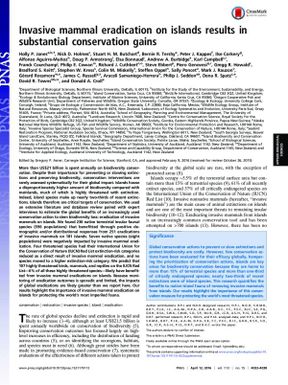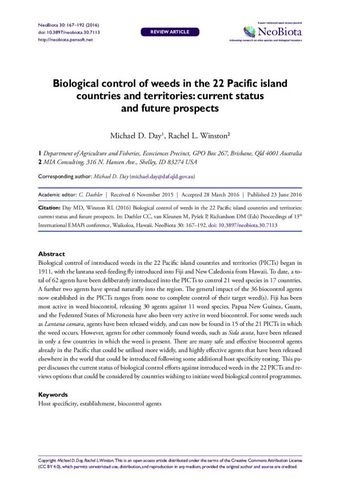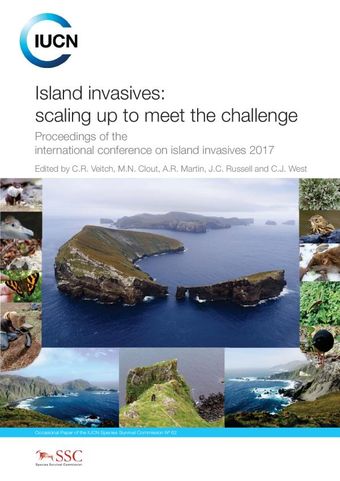Invasive mammal eradication on islands results in substantial conservation gains
- Description:
- More than US$21 billion is spent annually on biodiversity conservation. Despite their importance for preventing or slowing extinctions and preserving biodiversity, conservation interventions are rarely assessed systematically for their global impact. Islands house a disproportionately higher amount of biodiversity compared with mainlands, much of which is highly threatened with extinction. Indeed, island species make up nearly two-thirds of recent extinctions. Islands therefore are critical targets of conservation. We used an extensive literature and database review paired with expert interviews to estimate the global benefits of an increasingly used conservation action to stem biodiversity loss: eradication of invasive mammals on islands. We found 236 native terrestrial insular faunal species (596 populations) that benefitted through positive demographic and/or distributional responses from 251 eradications of invasive mammals on 181 islands. Seven native species (eight populations) were negatively impacted by invasive mammal eradication. Four threatened species had their International Union for the Conservation of Nature (IUCN) Red List extinction-risk categories reduced as a direct result of invasive mammal eradication, and no species moved to a higher extinction-risk category. We predict that 107 highly threatened birds, mammals, and reptiles on the IUCN Red List6% of all these highly threatened specieslikely have benefitted from invasive mammal eradications on islands. Because monitoring of eradication outcomes is sporadic and limited, the impacts of global eradications are likely greater than we report here. Our results highlight the importance of invasive mammal eradication on islands for protecting the worlds most imperiled fauna.
- Display date:
- 2016
- Collections:
- Secretariat of the Pacific Regional Environment Programme (SPREP)
- Publisher:
- PNAS
- Content partner:
- Secretariat of the Pacific Regional Environment Programme (SPREP)
- Availability:
- Not specified
-
Copyright status: All rights reservedFind out more about what you are able to do with this itemThis item is all rights reserved, with means you'll have to get permission from Secretariat of the Pacific Regional Environment Programme (SPREP) before using it. For more information, please see our use and reuse page.What can I do with this item?Non-infringing useNZ copyright law does not prevent every use of a copyright work, and this item may be hosted by an international institute or organisation. You should consider what you can and cannot do with a copyright work.No sharingYou may not copy and/or share this item with others without further permission. This includes posting it on your blog, using it in a presentation, or any other public use.No modifyingYou are not allowed to adapt or remix this item into any other works.No commercial useYou may not use this item commercially.
Related items
Welcome and warm Pasifik greetings
The information on this site has been gathered from our content partners.
The names, terms, and labels that we present on the site may contain images or voices of deceased persons and may also reflect the bias, norms, and perspective of the period of time in which they were created. We accept that these may not be appropriate today.
If you have any concerns or questions about an item, please contact us.


